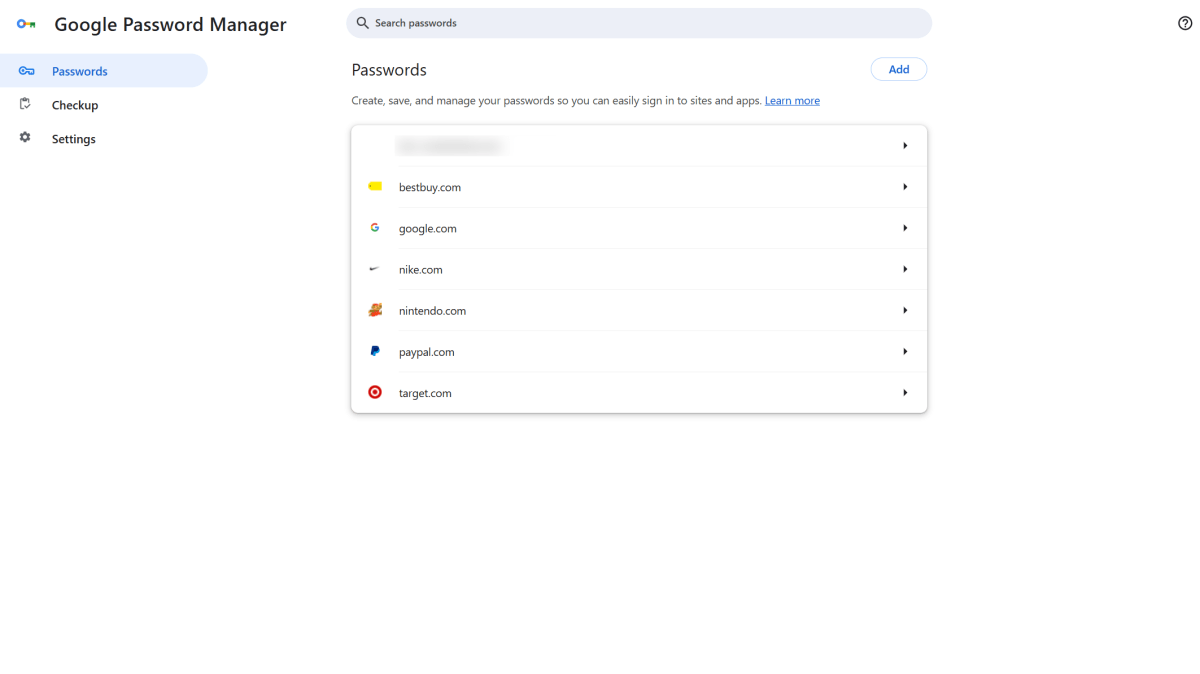You understand the importance of using random passwords, and that’s a great start. However, in today’s evolving digital landscape, you need to take further steps to fortify your online security. Simply using strong passwords isn’t enough anymore.
If you rely on the same username across multiple websites, you’re making yourself an easier target for hackers. And if that username is your email address, you’re essentially handing them the key to your digital life.
 Google Password Manager within Chrome (Nov 2024)
Google Password Manager within Chrome (Nov 2024)
By adopting random usernames alongside random passwords, you significantly complicate a hacker’s efforts. This practice thwarts credential stuffing, a common tactic where hackers test stolen credentials across various platforms. If your primary email address hasn’t been compromised in a data breach, random usernames make it considerably harder to guess.
Implementing Random Usernames with Password Managers
Integrating random usernames into your security protocol is surprisingly easy, especially if you already use a password manager. Whether you utilize the built-in managers from Google or Apple, or a dedicated third-party service like ProtonPass, these tools can securely store your unique usernames and passwords. Some password managers even offer email masking (also known as email aliases), shielding your real email address by generating alternative addresses for logins.
For instance, if your regular email is emailaddy@randomdomain.com, an email mask might look like e8xk3x@otherdomain.com or duck-duck-goose@birds.com. Emails sent to these masked addresses are then forwarded to your actual inbox.
Prioritizing and Implementing Changes
While this added layer of security might sound complex, it’s straightforward to implement. Begin by focusing on your most critical accounts, such as financial institutions and healthcare providers. Gradually expand this practice to other online platforms. You can update your login ID the next time you sign in to each account.
Why Random Usernames Matter in the Age of Data Breaches
The prevalence of data breaches provides hackers with a wealth of information to exploit. Therefore, prioritizing online privacy is crucial for bolstering your security. Although hackers can leverage AI tools to craft sophisticated scams and targeted attacks using stolen data, random usernames make you a less predictable and identifiable target.
Securing Your Password Manager
Remember, the effectiveness of your random usernames and passwords hinges on the security of your password manager. Ensure your password manager is robustly protected. Crucially, avoid storing your primary email account credentials within the password manager itself.
Conclusion: A Simple Step for Enhanced Security
Implementing random usernames is a simple yet powerful step towards strengthening your online security posture. In conjunction with strong, unique passwords, this practice significantly reduces your vulnerability to cyberattacks. Start protecting yourself more effectively today by incorporating random usernames into your online security routine.











